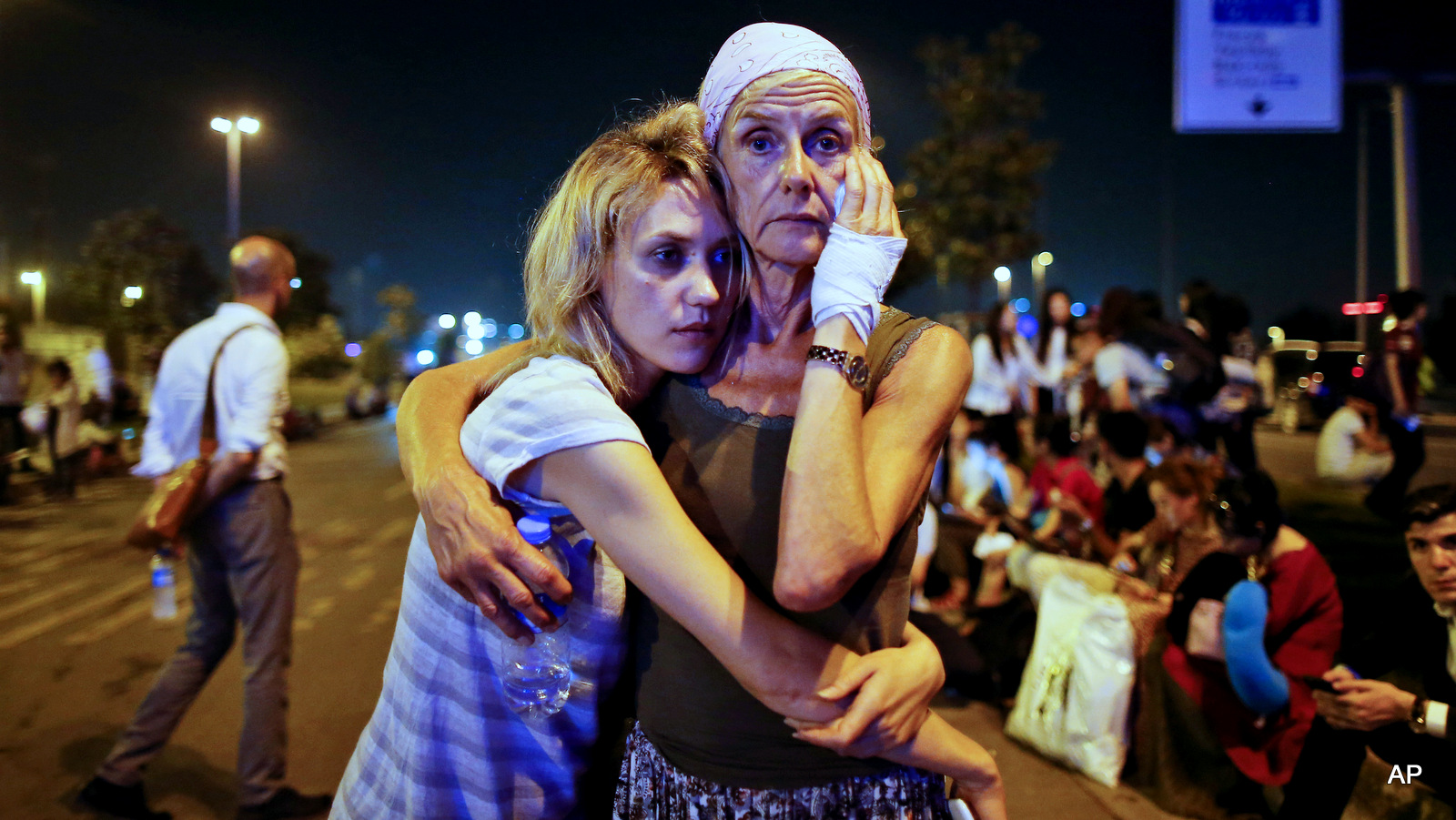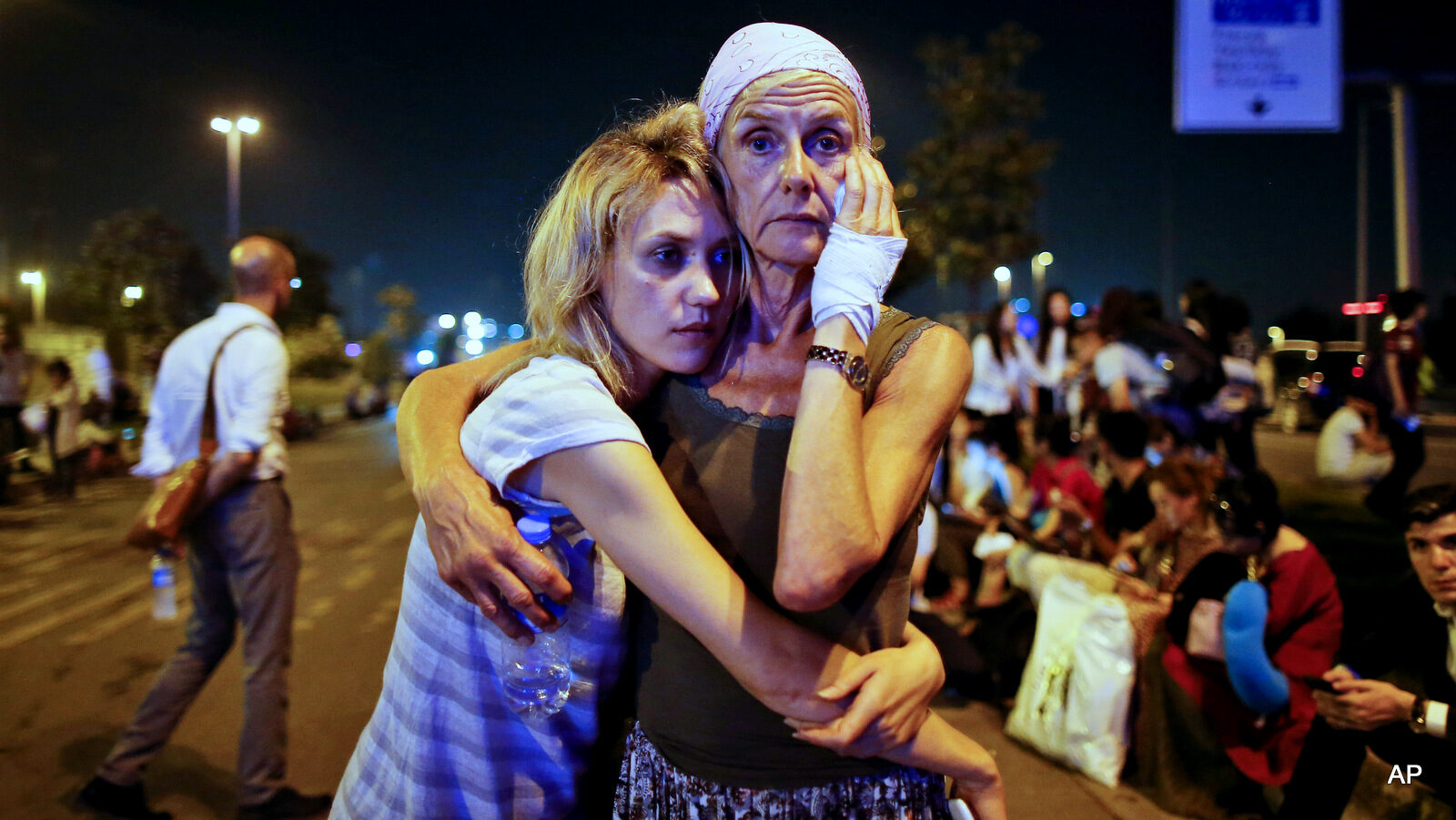
I was just in Istanbul on Monday morning, flying back from four days in Sarajevo. I’ll be there again next Friday, passing through once more. I’ve been a tourist in Istanbul and a tour guide, too. I’ve gone there for work and for pleasure, for family and for fun, as a destination and a connection. I think it might be the greatest city in the world, and I have high standards: I’m a New Yorker. So Tuesday’s attack on Ataturk International, which killed 41 and injured scores more, hit awfully close to home.
But so did our response.
Once more, there’s far less outrage when the victims of terrorism are Muslim. I don’t see any world leaders flying to Istanbul to march in public protests against extremism, after all, even though there’s been more violence from terrorists in Turkey than many other countries.
Some Muslims think this double standard is a clear instance of Islamophobia. I’m not sure I agree. What’s happening here has more to do with what we know about Muslims, what we don’t know about Muslims and what we would prefer not to know about Muslims.
We love movies, especially disaster movies. But look at who the disasters happen to. People pay money to see the places they care about go up in smoke. That might mean cities many people have been to, want to go to or are actually from.
Next to nobody wants to see Baghdad, so next to nobody wants to go see Baghdad destroyed on the screen. And even if they did, they might not know it’s Baghdad that’s being leveled — I always grimace, for example, when a city like Islamabad is portrayed as if it’s in a desert, not the impossibly green Punjabi plains. It’s like filming in Malaga and proclaiming it Manhattan.
We care more for places we know, and for people like us. We dismiss places we don’t.
As China has become a global superpower, we’ve seen Hollywood bend over backward to reach its audiences. The Netflix series “Marco Polo” is a solid summary of the early 21st century: Westerner goes east. That way, both Western and Eastern audiences will want to watch, and you make more money.
But how many people can afford Netflix subscriptions, or movie tickets, or newspaper subscriptions, or can write letters to the editor, or complain to advertisers, in Muslim countries? Because, sadly, the Muslim world is much poorer than the West (and now the Far East, too).
Societies that have trouble meeting the basic needs of their citizens certainly can’t afford to make the world aware of their culture and values by investing in soft power, educational exchange or cultural diplomacy. They end up ignored, unknown, misunderstood and demonized. They are misrepresented in mainstream media, but they lack the resources to push back, to tell their stories, to challenge biases.
Turkey is wealthier than many Muslim countries, but it’s still not as central to the global imagination as Paris, as Brussels, even Orlando. So even if Istanbul suffers the same kinds of violence that we do, it doesn’t generate the same kind of sympathy.
But that’s still not all that’s happening here.
We often talk about extremism as if it comes out of nowhere. As if it has no causes, and our foreign policies have no consequences. We’re actually genuinely surprised that wars against Iraq, created by Western colonizers, have ultimately helped incubate a global terrorist movement that has aspirations of imperial conquest.
While there have been some outstanding analysts and experts, like Andrew Bacevich, Karen Greenberg andMark Danner, who have pointed out the consequences of the war on terror, most of us prefer to proceed on autopilot. Because just like it’s easier to sympathize with people you understand, it’s harder to accept facts that force you to discuss your own complicity in another nation’s implosion.
So we’re too often indifferent to Muslim victims of terrorism not only because to be otherwise would force us to rethink our assumptions about Islam (that it is a violent religion), but that it would force us to accept some measure of culpability in the events so traumatizing the world.
It’s the mirror image of Muslims who deny ISIS has anything to do with Islam, or even go further and proclaim ISIS a Western conspiracy.
Many of us prefer to think of ISIS as prosecuting a civilizational war against the West; that the majority of ISIS’ victims are Muslims challenges the idea that ISIS authentically represents Islam, and that the West is the only — or even primary — victim of terrorism. If ISIS is a blatantly anti-Islamic, anti-Muslim movement, whose violence is mostly directed at Muslim communities, we’d have to reorient our entire approach to the Muslim world.
Doing so might force us to consider Palestinians, or Iraqis, or Yemenis, as just as dignified and valuable as we are, which would mean we would have to question, very seriously, why we treat their countries in ways we would never accept being treated — in ways that, if we’re honest, we would respond to with violence.
But while today it happens to be Muslims, in the past it might have been Jews, or Native Americans, or the Japanese.
While we publicly debated the Iran deal, few pointed to the hypocrisy of the only country in the world to have ever used nuclear weapons against civilian targets lecturing the world about the dangers of nuclear weapons.
And that’s why this goes beyond Islamophobia.
One of the main reasons we pay little attention to Muslim victims of terror isn’t just that we know less about Islam, and have fewer ways to learn more. It’s also because we prefer not to look too closely at something that would make us look more closely at ourselves.
After all, we might not like what we see.


